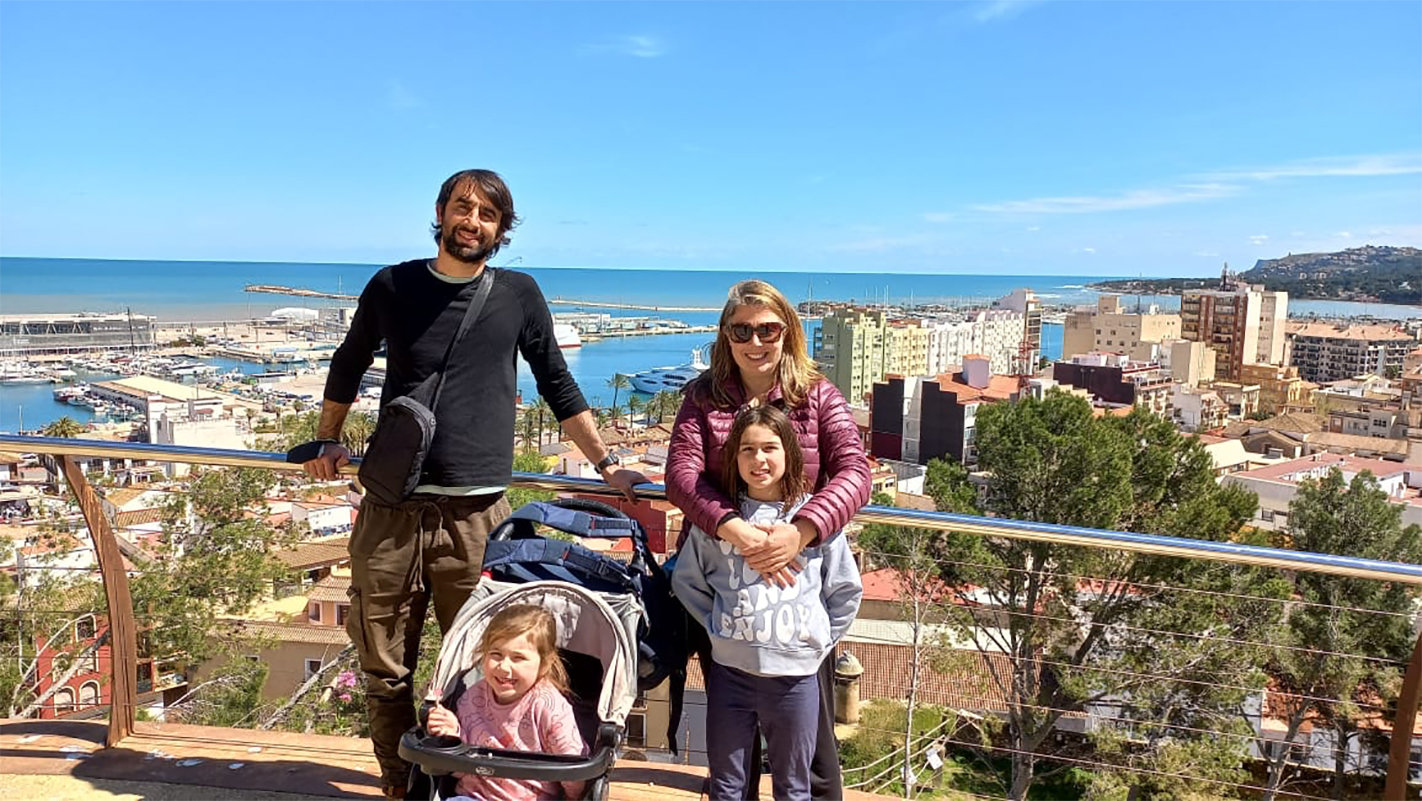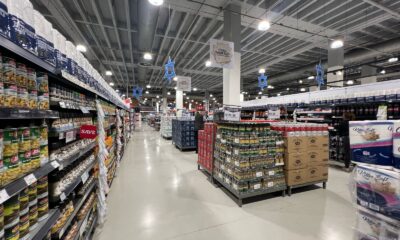
Featured Item

Wandering Jews find home in unusual places
Aarhus. Valencia. Ho Chi Minh City. Jersey. Whether it started out as a desire for something different, a journey for love, a gap year, or a way to stay close to family, these South African expats have found happiness off the beaten track.
Adam Gordon was active in the apartheid struggle in the 1980s and early 1990s – both as a student and then as a journalist. Grateful for these experiences but seeking something different, he moved to Israel in 1993. He later lived in countries including the United States, France, England, and Wales – with a three-year stint back in Johannesburg along the way. “Sometimes the wind blows, and you just end up somewhere, it’s not all a matter of choice,” he says.
Today, he’s a professor in the academic faculty at world-renowned Aarhus University in Denmark, where he lives with his wife and three children. “We moved because of Brexit – we were living in the United Kingdom, and wanted to use our European Union relocation rights before we lost them,” he says.
“Living overseas changes you. There’s a level of enrichment that you can’t replace or get any other way. It has its struggles, but you reach a point where you have a layering with a three-dimensional perspective on choices, particularly those made at a social and cultural level. There are fewer fixed points around how people do things.”
This is also true of the Jewish communities Gordon has encountered around the world. “Obviously, there’s a core and the fact that this core continues to exist is part of the miracle of Judaism,” he says. “Yet many things are done differently, and you can’t experience that by living in just one place.” While there are some Jews and a Chabadnik doing outreach, Jewish life in Aarhus is minimal, he says.
Unlike South Africa, Denmark is quite regulated. There are rules and people obey them, bringing a certain kind of peace. “It doesn’t, however, have the kind of sass and creativity of Johannesburg, where people are constantly improvising and making it happen despite the challenges.”
Sivan Strous has also lived in numerous countries outside South Africa. “My Argentine husband and I met in Israel on a kibbutz ulpan programme,” she recalls. “His family was living in São Paulo, Brazil, at the time, so we joined them there after the ulpan.” The couple soon moved to Buenos Aires, Argentina, where they lived for 17 years.
This adjustment was incredibly hard, Strous admits. “Argentina is very different to South Africa in terms of language, culture, and lifestyle. I missed my friends and family, and I couldn’t communicate. It took about two years before I felt more comfortable with living there, largely because I began working for a predominantly English-speaking company.” Yet she ultimately became fluent in Spanish, and now has two bilingual daughters.
The family recently moved to Valencia in Spain. “We’ve gone to Europe often and I loved the idea of living there, especially in a place near the beach from where we’d be able to travel around more easily,” says Strous. “Spain and Argentina are very similar, so there isn’t a culture shock and I already speak the language, so the move hasn’t been too challenging.”
She is, however, saddened by the lack of Jewish life in Valencia. “In Buenos Aires, the girls went to a Jewish school, we belonged to a Jewish club, and it was good to have that sense of community.” Yet, Strous and her family look forward to spending some chaggim in London, where her brother and his family live.
Nathan Caminsky’s life also went in an unexpected direction. Rather than following friends pursuing post-matric programmes in Israel, he was inspired by his father, who took a gap year to work and travel. While doing online research one night, he was offered a job teaching English in Ho Chi Minh City, Vietnam.
Grabbing the opportunity to live in Asia, Caminsky moved six weeks later. Four years on, he’s still in Vietnam, and running his own small business recruiting English teachers from English-speaking countries around the world.
“I fell in love with Vietnam,” he says. “It’s not a first choice for many people but the way of life is special and unique.” Though safety and efficiency are just some of the perks of life there, it’s the warmth of the Vietnamese people that really resonates.
Caminsky remembers when he first arrived in the city and was afraid to cross the road amidst the thousands of motorbikes that regularly disregard traffic lights. “Seeing my fear, a very elderly Vietnamese lady came and took my arm. She didn’t say anything, she just walked me across the road. The people here are incredible.”
Having rarely attended shul in South Africa, Caminsky has become a Shabbat regular at the local Chabad. “When you arrive in a foreign country, it’s all fun and games,” he says. “Then you realise that you need a community, and as a Jew, the first thing that resonates with you are Jewish people.” There are between 250 and 300 Jews in Vietnam – most of whom are Israeli and American – and about 15 regular shul goers.
Though adjusting to adulthood almost overnight when he moved was a challenge, it’s one that made Caminsky who he is today. “I was just out of high school and suddenly, I was alone in a foreign country having to fend for myself. Your environment shapes you and living here, having more responsibilities and starting a business, has made me grow. It’s been the best decision of my life.”
Mike Kushner and his wife Jess – both lawyers – left Cape Town to join his parents in England in 2019. Kushner’s father later joined a dental practice in Jersey, the biggest of the Channel Islands. Falling in love with the island during a visit, Mike and Jess followed a year ago. “We’re happy and settled. It’s a fantastic place,” says Kushner.
Just less than 120km², Jersey is located between the French and English coast. It’s a British crown dependency that functions as an independent county – something that defines the spirit of its people.
Occupied by the Nazis in World War II, Jersey faced significant hardship, and its Jewish community was largely decimated. “There’s widespread awareness of the Holocaust here, perhaps more so than in other countries because it was very personal,” says Kushner.
Jersey also has strong financial links with South Africa, so there’s a significant expat community. While the Jewish population numbers only about 100, this should rise as more Jewish South Africans in the financial sector are drawn to the island.
“We have a fully Orthodox shul with a warm community and weekly Saturday morning services, as well as a full yom tov offering,” Kushner says. “I’m not a rabbi, but I take the services and we get a minyan at least once a month when we host a big brocha.” This Purim, the shul had its first megillah reading in more than 30 years.
Though Kushner grew up in a religious home, he drifted away slightly over the years. “Now being part of a warm community where my wife and I feel really grounded and welcomed, we’ve reconnected to a more observant Judaism.”










